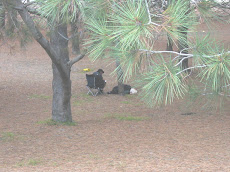Some of my blog followers were displeased with my last post because it questioned a few of the usually unquestionable, foundational Judeo-Christian notions of our Western world. The pillars among them -- hope, faith, and love ---the objects of my philippic, begged for a response because of the obvious heresy; and I was inviting it, even though I admit I was also making an attempt at wry humor. Still, my anfractuous life and bouts of pessimism leave me no alternative but to question everything, including what we consider to be the most sacrosanct of our heritage.
We seem to be at the ultimate cultural nadir represented so utterly and graphically by the Deepwater Horizon explosion and oil leak in the Gulf of Mexico. Our weak social, political, and economic underpinnings are showing and presenting us with the most critical challenge we have ever faced in Western history, which is to change the paradigm or die. Personally, I do not believe we will change, at least, not in time; and time is not only of the essence, but an unrecognized commodity of the first order that the cultural powers have chosen to ignore.
When we speak of paradigm shift, it involves much more than just getting into spiritual alignment. Changing Ages, as it were, that is moving out of the Christian Age and into an as-yet unnamed "new" Age, happens at the root, dislodging it or cutting it off. It is not too soon to grieve the loss, as it will be great and no doubt plummet us all into an abyss much deeper than the darkness that befell what remained of the Holy Roman Empire. I think how remote, for example, Greek history seems to us from our current place in time.
God was Zeus to the Greeks, and they had many, many sub-gods, not just a Jesus as the Christans have, but perhaps more on the order of the Hindu divinities. Of course, this is oversimplifying. My point here is just how hard it has always been for me to imagine the Greeks (or Romans) worshipping these silly and often cruel characters to whom they built temples, prayed, enacted rituals, and offered other forms of homage. But, then, their gods were not promising an afterlife, but mirroring the world as it was and still is. Perhaps their gods made living in the world more comprehensible. The Greeks were not trying to escape reality, but trying to get along with it; and it was made more bearable by gods that shared it.
We cannot believe that the Greeks did not also have hope, faith, and love which we like to credit to our culture and religion. We cannot believe --- even without internet, automobiles, and other accessories of our world (I hesitate to say modern) ---that the Greeks were not the same as all people of all times, having the same human needs. We cannot make the judgment that their religion was primitive and that Jesus is a better man-God, for it is getting harder by the day to see what progress humankind has made over the centuries.
At the distance of another 2000 years, Christianity and other religions of our time are going to look just as curious as the pantheon of Greece or Rome do today. Christmas will transmogrify or disappear. Perhaps some ritual event that was originially meant to save us from the great oil-bleeding hole in the Gulf will replace it, accompanied by a beautifully-obscure text about the end time that will mystify the next earth inhabitants.
Truly, we cannot keep this up.
Our present culture is not based in the earth realities of the connectedness of all life forms, but on creating merit for an afterlife, what the entire capitalist system really is and all the other life-eating, socio-economic, top-down structures, including communist regimes that themselves await the dawning of the perfect society. The similarities between cultural structures on this planet are more alike than not. All depend upon control of the masses through fear and enslavement, though self-enslavement in the service of fear in not uncommon. Nature as the ultimate display of freedom must be snuffed out; and all life forms, man or beast, that will not submit or cannot be used or made to fit are doomed to war, killed outright, consigned to museums, or shipped to zoos.
Hello world!
-
Welcome to WordPress. This is your first post. Edit or delete it, then
start writing!





























Very provocative. I am worried about real homelessness soon without a job or home - don't think I'll have a phone or laptop then but did enjoy your read.
ReplyDeleteDear Anonymous,
ReplyDeleteYou are not alone, and there are no guarantees that I can remain housed. I believe you are going to have a lot of company in the coming months and years.
What I hope for all our sakes is that we are able to organize into camps in safe places. There is a need to lobby city councils for the right to squat and for a moratorium on police actions affecting the homeless. After all, we are still citizens.
You will need a phone and a laptop, so take a job of any kind just to have some money. You will feel better about yourself for having done it. You will be less lonely with a phone and be able to contact various services. The internet is now the only place to find work and the people you are going to need.
Of course, there is homelessness without the gadgets. You can use the internet at the public library, but living without a phone is too remote for me. Still, it is done every day out here on the street. My concern was always about falling too far down, so far down that I was no longer employable and able to take care of myself.
Unfortunately, homelessness is criminalized. Just keep your head. Do your best. Make up your mind how you want to live. If you have to be homeless, you will need to find out how to do it --- that is, where you can sleep and eat and so on.
Please stay connected here. I will help as much as I can with information.
Kerry